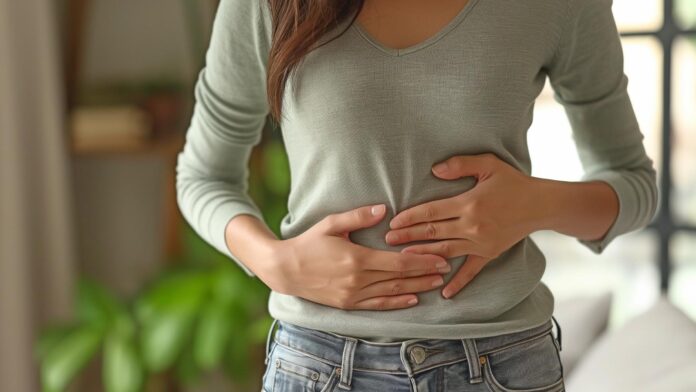Struggling with irregular periods or missed ovulation? Know the link between weight loss or weight gain and period to better understand how changes in your body can impact your menstrual health.
Your weight plays a key role in maintaining a healthy hormonal balance, which directly impacts your menstrual cycle and ovulation. Both weight gain and period changes are closely linked, as sudden shifts in body fat can disrupt the production of hormones like estrogen and progesterone—crucial for regulating periods. Extreme weight loss or excess weight gain can throw off this balance, leading to irregular periods or even missed ovulation. Conditions like hypothyroidism and PCOS (Polycystic Ovary Syndrome) can make these hormonal fluctuations even more common. So, it is important to understand the link between losing kilos or weight gain and period changes, and how these are interdependent.
Weight gain and period: Are they linked?
Yes, there is a connection between weight gain and period irregularities. If you have gained weight recently and are now overweight, it can affect your menstrual cycle in many ways:
1. Infrequent periods
When your body stores extra fat (adipose tissue), it can cause hormonal imbalances that disrupt ovulation. Fat cells produce more estrogen, and too much estrogen can mess with your hormone levels, sometimes stopping ovulation altogether and leading to missed periods. A common cause of missed periods in overweight women is polycystic ovary syndrome (PCOS), as per the Journal of Obesity & Metabolic Syndrome.
2. Heavier periods
Heavier periods is another consequence of the link between weight gain and period changes.Women who are overweight are more likely to experience heavier periods. Heavy menstrual bleeding is defined as bleeding that lasts longer than seven days, requires frequent pad or tampon changes, or involves passing large blood clots. If left untreated, heavy bleeding can lead to iron-deficiency anemia, which can cause fatigue and weakness.

How does weight loss affect periods?
Not only is there a link between weight gain and period, but losing weight too quickly or being underweight can also impact your menstrual cycle. it can lead to a drop in estrogen levels, which can disrupt your cycle. Here’s how weight loss might impact your period:
1. Light periods
Rapid weight loss can cause low estrogen levels, leading to delayed or irregular periods. Your body takes weight loss as a sign of extreme stress or starvation. This further signals your brain to shut down the reproductive system to conserve energy.
2. Amenorrhea
If you lose too much weight, your periods may stop entirely. This is called amenorrhea, which occurs when you have not had a period for three months (and are not pregnant), explains the Mayo Clinic. Symptoms can include acne, hair loss, headaches, and excess facial hair. This is more common in women with PCOS. Being underweight can disrupt hormone levels and prevent ovulation, meaning you won’t have a period. This can also lead to infertility and affect your bone health, as low estrogen levels weaken bones over time.
How to maintain a healthy weight to manage the period cycle?
Now that we know that your weight gain and period cycle are interdependent, it is crucial to maintain a healthy weight. Here are 7 tips to help you stay on track:
- Focus more on eating a healthy and well-balanced diet. Your diet should contain plenty of fruits, vegetables, whole grains, nuts, seeds, and lean proteins. Avoid processed and sugary foods.
- Avoid extreme calorie restrictions or going on some FAD or crash diet. These things can negatively affect the production of vital hormones.
- Engaging in regular physical exercises like walking, cycling, running, strength training or weightlifting.
- Aim for 7 to 8 hours of sound sleep because lack of sleep can affect your hunger hormones.
- Chronic stress can lead to emotional eating and weight gain. So, practice stress management techniques like yoga, deep breathing, or meditation.
- Drinking plenty of water throughout the day can promote weight loss by reducing food intake, especially if you drink water before a meal.
- Limit your daily sugar consumption, as it can lead to weight gain and other health problems, which can cause you to gain weight.

When to see a doctor?
While there is a natural link between weight gain and period changes, you need to see a doctor if you experience the following symptoms:
- Your periods suddenly stop for more than 90 days, and you’re not pregnant.
- Your periods become irregular after being regular for a while.
- Your period lasts longer than seven days.
- You are bleeding more heavily than usual or soaking through a pad or tampon every hour or two.
- Your periods are coming less than 21 days or more than 35 days apart.
- You experience bleeding between periods.
- You have severe pain during your period that does not feel normal.
In addition, if you are experiencing any other issues with your menstrual cycle or ovulation, it is important to consult a doctor.

